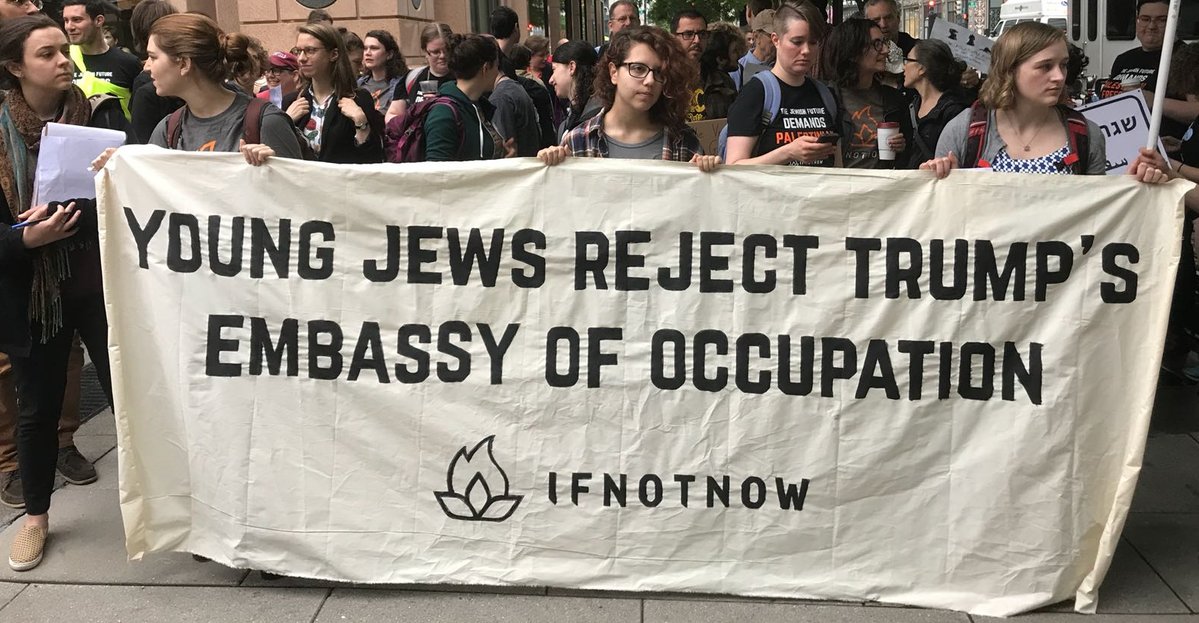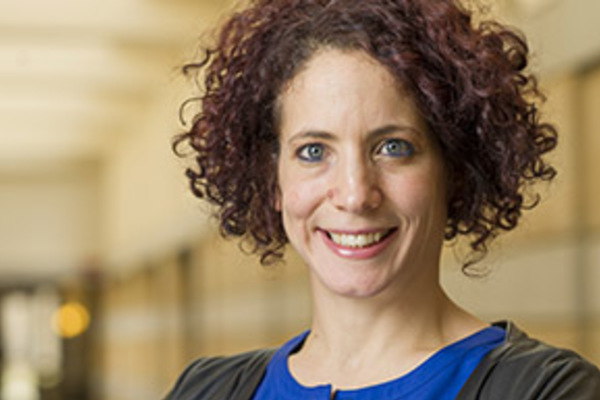
This week’s symbolic opening of the U.S. embassy in Jerusalem, with attendance from high-ranking American officials and a visual background set portraying the merging of the American and Israeli flags, marked a terribly deadly day for nonviolent Palestinian protesters. Over 61 are now declared dead and almost three thousand more injured, and many may spend the rest of their lives with amputated legs, which (together with spraying tear gas from drones) reveals an operationalized military method to demobilize Gazans. It is not that there are no armed groups in Gaza, but the particular organizers of the protests chose nonviolence, signifying sensitization to the effectiveness—if not the morality—of this method of resistance. Still, how does one expect Palestinians to endure their occupation nonviolently?
The stories conveyed in the American stagecraft and, importantly, the stories silenced or omitted, reveal the U.S. to be actively fueling the conflict it claims to want to resolve and increasing the divide between non-Israeli Jews and Israeli Jews. In the Trump era, antisemites and Christian Zionists are co-positioned as moral authorities, delegitimizing the U.S. as an honest broker in the region. Questioning the honesty of the United States’ brokering is not new. What is new is how clear this argument has become given the juxtaposition of the carnage in Gaza and the pomp and circumstance in Jerusalem. This juxtaposition conveys the complexities of modernity through a specific set of discourses and practices. The Israeli-Palestinian conflict and the occupation of Palestine cannot be understood without interrogating colonialism, orientalism, and antisemitism and how they relate to one another in narrating (Christian) modernity.
The indiscriminate violence against protesters in Gaza expressing their right of return, and the unilateral and provocative decision of Trump’s U.S. to move the American embassy to Jerusalem, only serve to deepen existing divisions, amplifying some narratives and silencing others. One narrative is most critically concerned with decades of Israeli occupation and the denial of Palestinian experiences of displacement. Relatedly, the many dead and injured people are often presented as faceless statistics, showing how entrenched colonial narratives about Israel and Palestine are. Palestinians, like other indigenous communities around the globe, appear to be both “ungrievable” and their dispossession instrumental for modernity as “progress.” Indeed, the siege on Gaza is a constant embodiment of coloniality as the constitutive dark side of modernity. Another narrative is about the consolidation of an expansive conception of Jerusalem as pivotal for the Jewish-Israeli nationalist imagination. Religious messianic Zionism is as modern as the secular discourses of national self-determination and could have not come into fruition if it were not for multiple “secular” Israeli governments’ subsidizing of the settlement project in the territories occupied in 1967.
There are other less muscular and less ethnoreligious narratives of Israeliness. However, these are increasingly diminished in traction. In recent years, internal critics of the occupation have been marginalized with the intensification of censorship and the delegitimization of groups such as Breaking the Silence. That President Trump appears to have a high percentage of approval in the Israeli public denotes both the partisan nature of American policy in the region and the diminished capacity of the United States to act as an honest broker. It is not only that its policy decision to relocate the embassy cohered with Benjamin Netanyahu’s aspiration and his coalition’s ideological underpinnings. It is also the case that the Trump administration’s decision to withdraw from an internationally ratified agreement with Iran is very much in line with Israeli agenda as articulated by Netanyahu and his political allies in Israel and the United States. Let us not forget Netanyahu’s effort to meddle in the deliberations in the House of Representatives, pleading with Congress to reject the Iran Deal in 2015. He now has what he was lobbying for.
The symbolic opening of the embassy amid destruction and death in Gaza also points to the silencing of suffering, routine violence, and military control over every facet of Palestinian lives. It allows one historical memory of Jewish suffering to trump and authorize others’ suffering and constant state of domination. This is the legacy of European Jewish modernity. The segregation, ghettoization, and eventual elimination of Jews is framed as a unique event, blinding Jews to the humanity and suffering of Palestinians whose displacement is so intertwined with the replacement of Jews in Palestine, and whose ghettoization in open air prisons such as Gaza presses upon us the terrible ironies of this modern narrative. But, memory, as argued powerfully by Michael Rothberg, does not need to be a zero-sum game. Holocaust memory too can be fruitfully decolonized.
The eruption in Gaza and the Jerusalem provocation also convey the coalescing of radicalization in Israel with the currents of Christian Zionism in the U.S. and their access to, indeed occupation of, the U.S. government, as indicated by the choice of pastors Robert Jeffers and John Hagee to offer benedictions and open the dedication ceremony of the embassy. Jeffers is infamous for his explicit anti-Muslim, anti-Mormon, anti-LGBTQI, and anti-Jewish statements. Hagee is likewise well known as the founder of Christians United for Israel. Both have theologized about pre-eschatological apocalyptic events in the Middle East. With the transfer of the embassy and the dissolution of the Iran Deal, they got the match they have been praying for and thus both offered words of praise to Trump as an instrument in their end-time drama. The symbolic ceremony in Jerusalem embodied the merging of the cynical, ideological, and eschatological as well as Islamophobia (orientalism), Zionism, and antisemitism. Meanwhile, in besieged Gaza, Israeli forces demonstrated a profound disregard for human life.
Choosing these pastors to lend supposedly moral authority to the event illuminates what became clear for critical American Jews and other non-Israeli Jews: in the Trump era, antisemitism and Zionism can go hand in hand, with someone like Richard Spencer celebrating his euphemistically labeled alt-right as “Zionism for white people.” Indeed, they also go hand in hand with multiple other bigotries. Hence, the most hopeful story is the protests led by IfNotNow, the millennial-led movement of American Jews. They assert, first, that Occupation is “not my Judaism” (#NotMyJudaism) and that the embassy move is an act clearly designed to entrench the occupation. These young people are indignant about their leaders’ warm relationship with the clear consolidation of antisemitic strains of Zionism. They also know that Israel does not make them safer. On the contrary, antisemitism is on the rise and their leaders seem to be okay with this. Otherwise, how could they enable the theater of the absurd that unfolded in the ceremonial opening of the embassy in Jerusalem.
The relocation of the embassy, the carnage in Gaza, and the honoring (and vindication) of Hagee and Jeffers point not only to the discrediting of the U.S. as a broker of peace in the region. It also points to the changing dynamics between Jews and Israelis, and the complex interplays between antisemitism, Islamophobia, and Zionism. This moment offers unprecedented clarity of the Trump Administration’s partisan support of a particular ethnoreligious nationalist version of Israel. What was previously expressed more opaquely (i.e. American support of the occupation, the enduring settlement project, and Israeli militarization) is now unequivocally clear. This clarity deepens the parting of the ways among non-Israeli and Israeli Jews. It also paves the road for a paradigm shift in terms of modes of imagining cohabitation. With the discrediting of the American brokerage, we hear loudly the nails in the coffin of the two-state solution.

